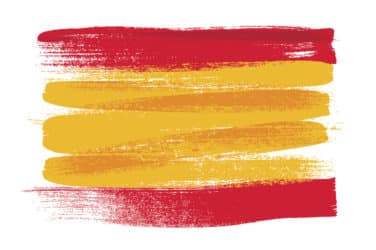
DZ BANK and BayernLB have for the first time successfully traded an over-the-counter (OTC) interest rate derivative in the form of a digital smart derivative contract (SDC), with the resulting payments settled daily via Deutsche Börse. They then processed the entire life cycle of this OTC derivative over several days in a fully automated and legally binding manner. The institutions have thus proved that such a transaction can be implemented completely digitally.
A new milestone for #smartfinance: @dzbank, @bayernlb and Deutsche Börse have for the first time successfully traded and processed an OTC interest rate derivative in the form of a digital smart derivative contract, using #DLT hosted in the #cloud. https://t.co/ynZjbzkK4o
— Deutsche Börse Group (@DeutscheBoerse) June 29, 2021
The three project partners implemented the digital OTC derivative using distributed ledger technology (DLT) and cloud technology. A smart derivative contract independently digitised the contract content and processed its terms. DZ BANK and BayernLB acted as trading partners. Eurex Clearing, the central counterparty (CCP) of Deutsche Börse, acted as a neutral account manager for exposures from this non-cleared OTC transaction.
Decisive advantages of smart derivative contracts are that the market value is calculated according to a contractually agreed uniform valuation model and outstanding receivables and liabilities are settled daily by automated booking (settled-to-market). Daily pre-financing ensures efficient payment processing. In addition, smart derivative contracts cushion default risks: automatic contract termination kicks in if contractual partners cannot meet the agreed terms and conditions. Distributed ledger technology serves as a digital accounting system for the recording and verification of transaction data, as well as for the automated settlement of exposures.
Smart derivative contracts thus not only simplify and accelerate the complex settlement processes of OTC derivatives. They also create an economic advantage for the participants in a transaction, because they reduce so-called counterparty risks – i.e. the default risk of a transaction partner – as well as procedural uncertainties.
The OTC derivative was implemented in cooperation with the Ludwig Maximilian University of Munich and with legal support from the law firm Jones Day. In the next step, further transactions with partners, e.g. from the asset management environment, are to follow.
“The successful trial of the smart derivative contract shows how we can develop efficient and innovative capital market products with the help of new technologies,” said Wolfgang Köhler, DZ BANK’s board member for Capital Markets. “We are thus making an important contribution to the digitalisation, homogenisation and automation of settlement processes of OTC derivatives on the capital market. In addition, the product opens up the perspective to reduce regulatory costs.”
“The emergence of digital capital markets has rapidly gained momentum in Germany and global markets, especially in the area of digital securities. The first fully digital settlement of an OTC derivative as a ‘smart derivative contract’ is a new milestone and also shows the potential of corresponding product and process innovations for complex capital market products. We are proud to make a decisive contribution to innovation in this field with this pioneering achievement together with our cooperation partners DZ Bank and Deutsche Börse,” says Johannes Anschott, BayernLB board member responsible for Corporates & Markets.
Jens Hachmeister, Head of Issuance & New Digital Markets, Deutsche Börse, adds: “DLT-based solutions are suitable for significantly improving the security and efficiency of products and processes on the capital market – especially in the off-exchange area. Smart derivative contracts and automated payment settlement via DLT are promising use cases here. As a neutral account manager, Deutsche Börse also ensures trust and efficiency in decentralised financial markets.”






